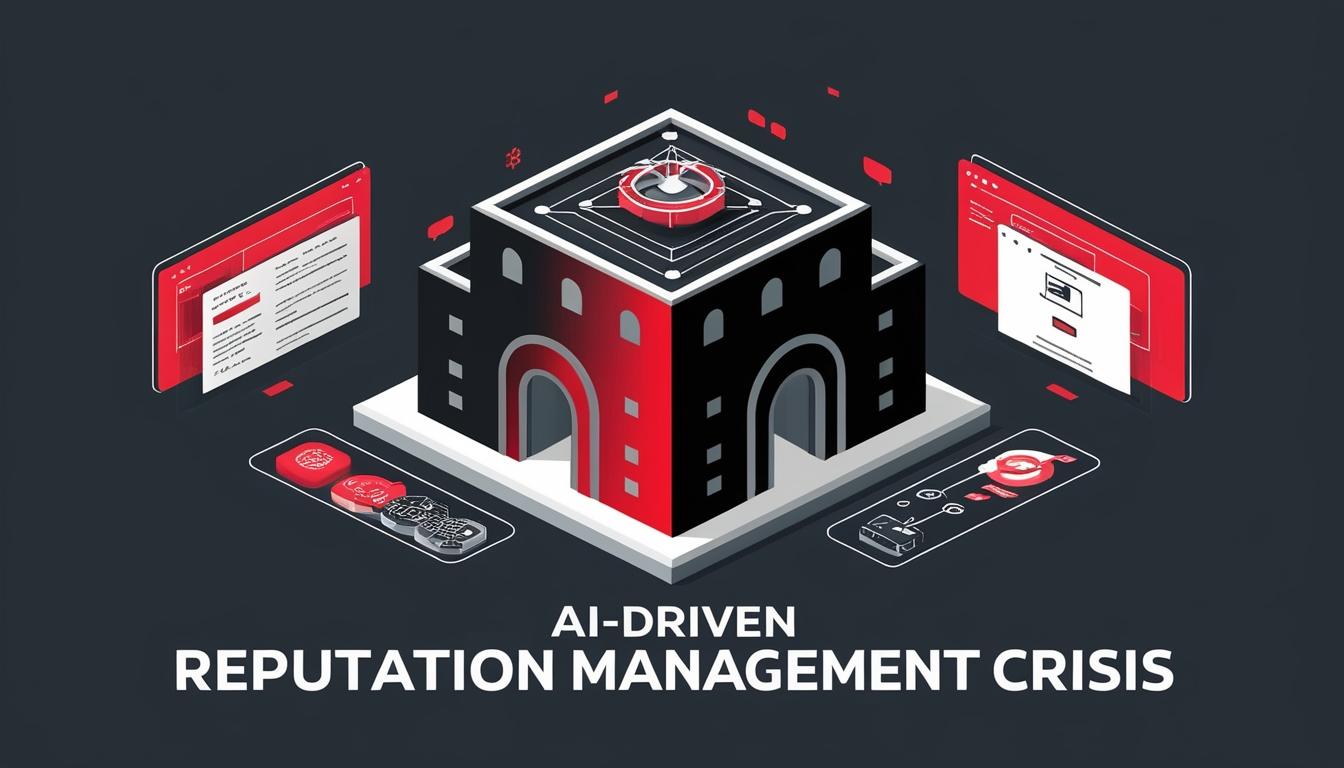In a rapidly changing technological landscape, the role of artificial intelligence (AI) in business practices continues to grow, necessitating a shift in how companies manage their reputations. A recent account highlights the pressing need for businesses to adapt their reputation management strategies in light of these developments.
The backdrop to this discussion stems from a board meeting where a company experienced a significant stock drop of 12% overnight, translating to a loss of $38 million in market capitalisation. The immediate cause was traced back to a viral online thread that was damaging to the company's reputation, illustrating how swiftly a firm's public perception can deteriorate in today’s digital world. This incident underscores the importance of prompt, effective reputation management, especially as businesses increasingly face AI-driven challenges.
The evolution of corporate reputation management can be broken down into distinct phases. In 2015, companies largely depended on traditional methods such as quarterly earnings calls and press releases for their reputation. By 2020, the focus had shifted towards social media monitoring and public relations responses. However, with the rise of AI technologies, 2025 is poised to see a more complex landscape dominated by AI-driven attacks and “algorithmic warfare.” One alarming example referenced is that of a company that suffered a $12 million loss due to misinformation spread via a competitor's chatbot manipulating search engine results.
Modern reputation management now extends beyond merely reacting to crises; it requires a robust digital infrastructure. Experts such as those at Alex Groberman Labs have emphasised that as much as 60% of buying decisions are influenced by a company's digital reputation before potential customers directly engage with sales representatives.
For businesses aiming to strengthen their reputation management, there are specific strategic timings, such as preparing for an Initial Public Offering (IPO) or before major product launches, when hiring a consultant becomes critical. Furthermore, indicators of risk include market expansions, regulatory changes, and competitor consolidations, while growth signals can be seen in valuation milestones and significant talent acquisition efforts.
When selecting a reputation management consultant, it is advised to consider their technical expertise, strategic depth, and knowledge of specific industry challenges. For instance, firms in the enterprise SaaS sector have reported an average monthly investment of $28,000 resulting in remarkable returns, such as the protection of $4.8 million in revenue within a mere 21-day crisis containment period.
The timeline for implementing a reputation management strategy typically unfolds in several phases, starting with digital footprint mapping and threat vector analysis within the first 24 hours. Over the course of a month, efforts shift towards managing search results and refining stakeholder communications. Sustained efforts in constructing a 'digital fortress' and testing crisis protocols are deemed essential for long-term protection.
Real-world case studies reveal the effectiveness of strategic partnerships in reputation management. A fintech company navigating a data breach was able to recover its stock by 28% in just 35 days; a healthcare network amplified its patient volume by 64% after addressing service quality attacks; and a tech platform enhanced user trust metrics by 88% following a transparency campaign amidst privacy concerns.
As businesses increasingly recognise the impact of their digital presence, metrics such as search visibility trends, sentiment ratios, and conversion patterns have gained prominence in boardroom discussions. The perception of trustworthiness is shaped by the digital signals from algorithms rather than traditional public relations narratives.
In conclusion, the landscape of reputation management is evolving in synchronisation with advances in technology and AI. As businesses prepare for future challenges, recognising reputation as a fundamental aspect of their digital infrastructure will be crucial in navigating the complexities of public perception in an algorithmically-driven economy.
Source: Noah Wire Services
